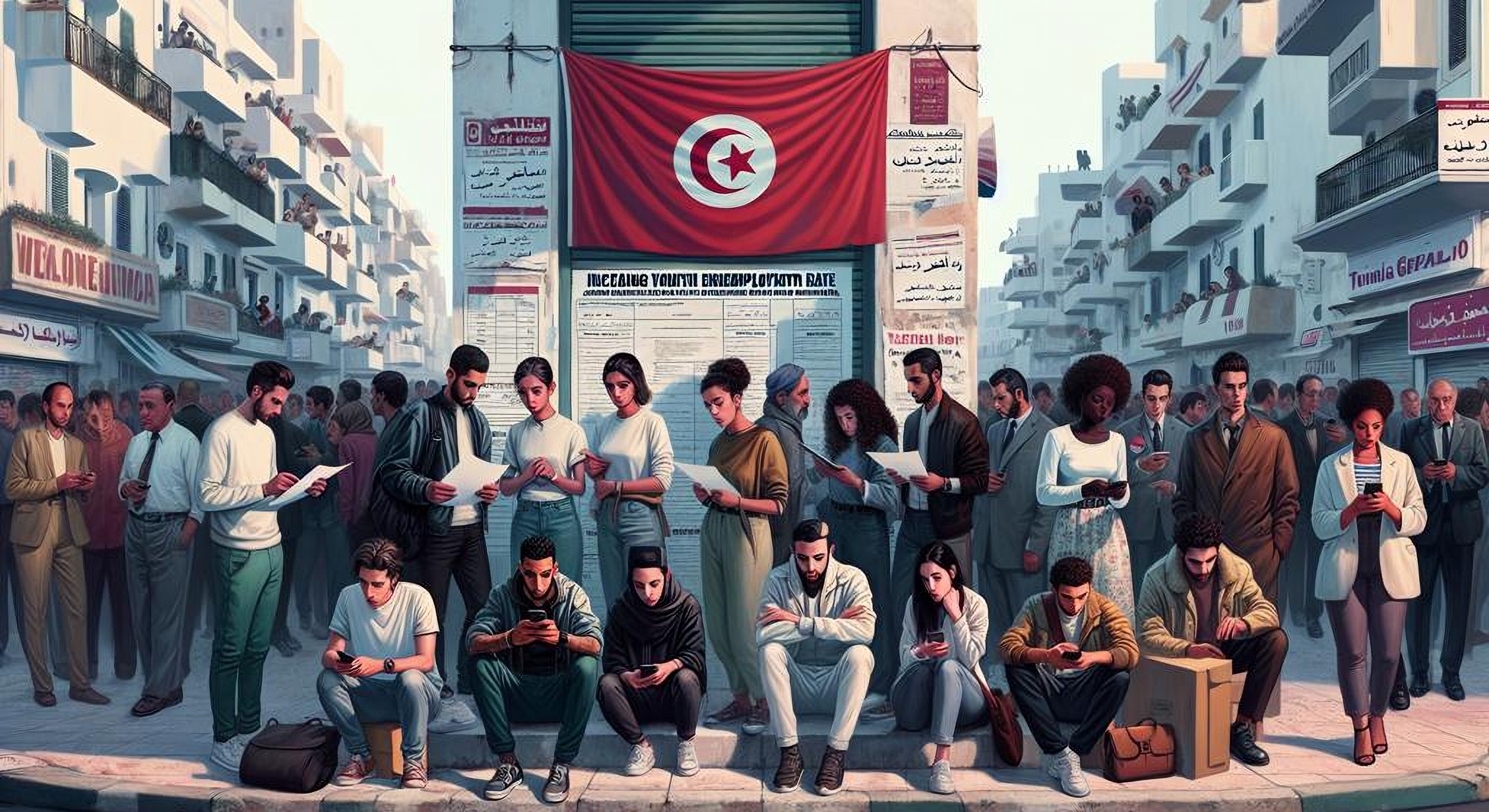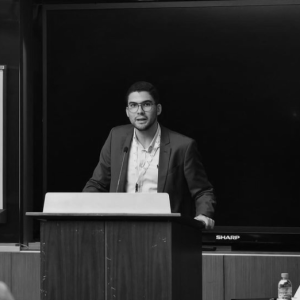
Sustainable Development in Relation to Youth Engagement in Civic Affairs

Sustainable Development in Relation to Youth Engagement in Civic Affairs - Melek El May
The youth category is among the most controversial age groups across various fields, especially in the Arab world, due to its role and effectiveness, while simultaneously encountering many challenges and obstacles. There is significant debate about youth engagement in civil society organizations, which are essential spaces for expressing their concerns and aspirations, as they help create organized areas fostering gathering and discussion, ultimately driving to real change.
We know that the Sustainable Development Goals and the 2030 Agenda, since their inception, have been clearly reflected in the working strategies of various components of civil society. Programs have been formulated around these goals initially and then worked on, leading to a noticeable development in advocacy forms as an important mean of demanding rights restitution, through various activities such as mobilizations, discussion forums, media presence, policy papers, and promotional and awareness campaigns on social media.
Moreover, significant funds have been allocated to empower youth and ensure their involvement in these goals. In this context, we can identify different benefits of the role of the Sustainable Development Goals in motivating young people to engage in public life. These goals possess a diversity that make them appealing to most youth of all backgrounds.
On one hand, some of the goals are directly related to the fundamental rights of youth, with Goal 4 focusing on the right to education, while Goal 3 addresses the right to health. Additionally, there are goals linked to emerging issues, such as Goals 9 and 11, which pertain to infrastructure renewal and sustainable development. Among these are the goals related to major global challenges, particularly the environment and climate change, which pose a looming threat to all countries worldwide, resulting in serious consequences like water scarcity and poverty that have become daily concerns for Arab countries, especially those in the Gulf and North Africa. This issue is tackled by Goal 13, which considers climate action one of the top priorities for youth, given its long-rooted nature and its connection to both current realities and future generations.
On the other hand, other goals focus more explicitly on youth and their roles, urging countries and organizations to promote collaborative and participatory efforts to achieve global peace, as outlined in Goals 16 and 17. Commitment to these goals would support youth engagement at the national level and enhance cooperation and exchange programs among young people from various countries, thereby expanding opportunities for Arab youth in particular and opening new horizons for them. It is important to emphasize the interconnectedness of the Sustainable Development Agenda goals and to treat them as an international tool to activate the presence and involvement of youth.
However, despite the importance of this agenda and other international standards, and although programs vary in their implementation—rising and falling depending on periods and local conditions—they remain insufficient to achieve the desired outcomes. This was acknowledged even by the United Nations Secretary-General Antonio Gutierrez, who stated in his speech before the United Nations High-Level Political Forum on Sustainable Development in September 2019 that "despite the progress made, we are still far from what we need to achieve."
It is also important to emphasize that while the Sustainable Development Goals (SDGs) represent an opportunity for youth to engage and assert their presence at local and regional levels, they also impose the responsibility on them to work diligently towards utilizing and leveraging these goals effectively, particularly for the youth in our region.
In light of the current circumstances, it is insufficient for us merely to be aware that there are seventeen goals that countries are expected to achieve by 2030, as mere awareness will not yield effective results. Instead, the youth in the region should delve deeper into the specifics of the goals and the official objectives of sustainable development, which number 169, along with the 232 indicators approved by governments.
This in-depth knowledge should assist young people in developing their action plans to work effectively within the framework of development. Understanding the details of the goals will provide the necessary knowledge and pathways to ensure the success of our advocacy and mobilization efforts, as well as to modify our operational tactics.
Moreover, enhancing attention to these goals will pave the way for youth in the region to address other types of issues, such as improving the representation of the Global South in decision-making bodies within political, economic, and financial institutions. Additionally, it involves liberating the United Nations from the influence of major powers and large corporations, especially when they possess the capability to argue and persuade effectively. This could facilitate the Global South’s concentration and influence within the UN, enabling it to apply pressure for adjustments in opinions or charters, particularly regarding the legal framework of the Security Council.
Here, we can refer to another important aspect, which is the role of governments in promoting interest in sustainable development goals. This can be achieved through various means, such as investing in data collection and dissemination, which are areas that particularly Arab governments do not give the necessary attention to. Additionally, there is a lack of open access to this data for the public and its utilization in research and development.
None of this will be realized without supporting civil society, removing legal and regulatory constraints, and upholding civil and political freedoms for all without discrimination. This will create space for youth to engage and take action.
In summary, the involvement of youth in civic work is a crucial factor in ensuring their awareness, education, and even their departure from individualistic notions towards committing to the public good and development goals. Despite its shortcomings, civic engagement provides a solid foundation for encouraging youth involvement. The Future Summit model represents one of the most significant opportunities to enhance presence, prepare for the upcoming phase, and adjust adopted policies while genuinely fulfilling states' obligations towards youth.
Recent publications

